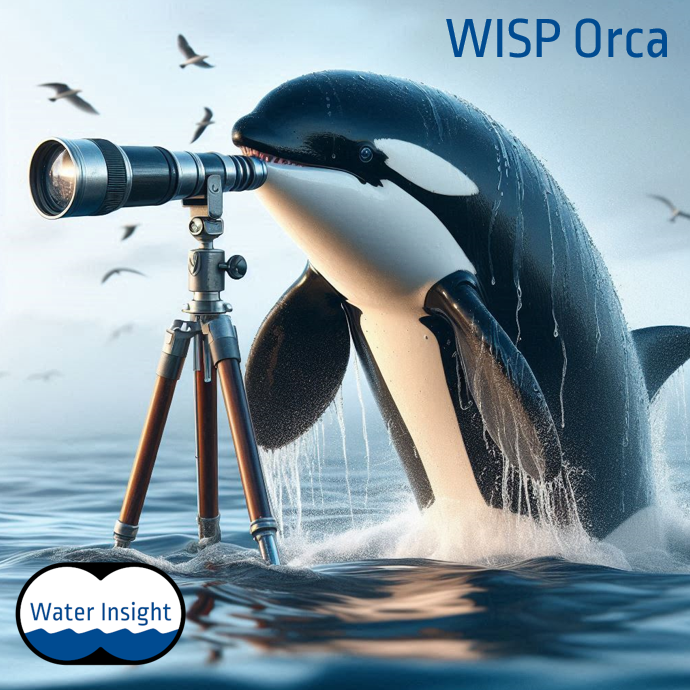Posted: August 15, 2024
The story behind the new naming for our instrument family
Orca’s, the largest members of the dolphin family, are fast and agile moving easily to explore different parts of the water. Therefore, our new hand-held optical scanner instrument is called the ‘WISP Orca’ reflecting their versatility and adaptability.
A common question from our customers is “How quickly can I get my WISP back from calibration?” Often, additional clarification is needed to determine if they mean their WISP-3 or their WISPstation. While we are thrilled that 'the WISP' is so well-known, we realized that ‘-3’ and ‘station’ are not memorable names. Thus, we developed a new naming system inspired by creatures that inhabit the waters we observe.
Imagine the lake, river, or sea you want to monitor. On a sunny summer day, before taking your first measurement, you likely look down to assess the water: its depth, colour, and whether you see plants or fish. Fish are fast and flexible, moving easily to explore different parts of the water. Therefore, our new mobile instruments will all be named after fish and water mammals, reflecting their versatility and adaptability.
As you look out over the water, you might also notice birds. On the shore, a heron might be standing still, or at sea, a seagull perched on a structure or your ship. These birds, with their keen eyesight and patience, are adept at observing through the water surface, and maintaining regardless of weather conditions. Therefore, our new fixed-position instruments will all be named after water birds, symbolizing their precision and reliability.
All our optical instruments will retain the prefix ‘WISP’ – for Water Insight Spectrometer – preserving our brand name and linking our new instruments to our established legacy and clients earlier publications.
The WISP Orca is designed for fast and precise optical water quality measurements (chlorophyll, cyanobacterial, turbidity,.. etc) and for calibration/validation of satellite data. Building on the robust experience of the well-known WISP-3 and WISPstations, the WISP Orca incorporates several significant improvements.
